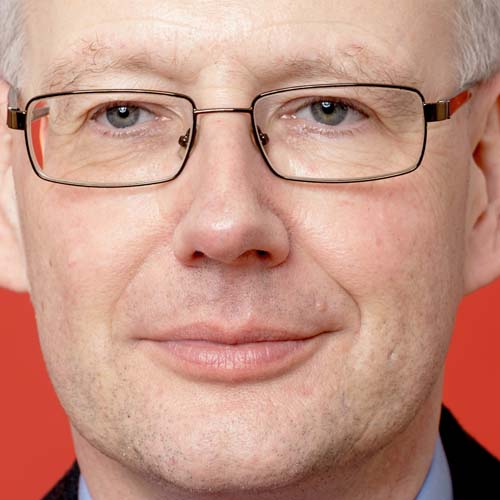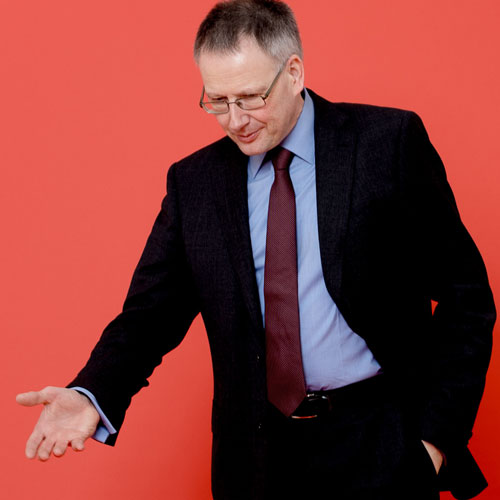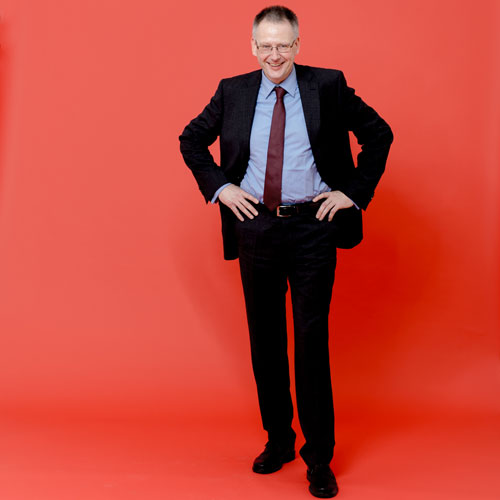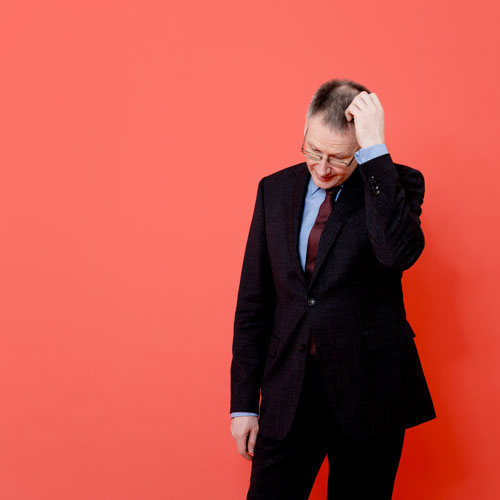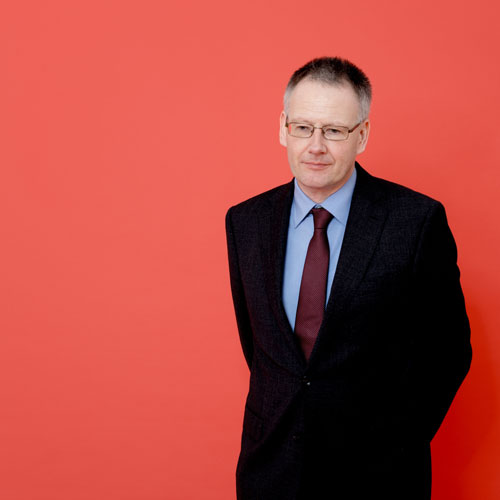Issue 9 / May 2014
Letter from Berlin
A musicologist searches for the musical history of Berlin and accidentally gets to study the mentality of the Berliners
Among the myriad privileges that a guest of the Wissenschaftskolleg can savor, the freedom from official duties is doubtless the most prized. But it is only when suddenly distancing yourself from this daily routine that you first become truly aware of the degree to which you are held captive to the vast demands of everyday life at the university and what would seem to be the increasing absurdity of its administrative measures. The leisure time now placed at your disposal not only tempts you to conceive new projects for whose realization you have hitherto lacked the necessary repose, but undertakings of a non-academic nature take shape in your mind – undertakings that would have been impossible amid the hectic frenzy of your “normal life.” A city like Berlin invites one to make forays and tours of discovery that are not solely confined to libraries and archives. One of the Wissenschaftskolleg’s great virtues is that you can give in to such temptations and become involved in the city and its offerings in unaccustomed ways. The secret to exploring realia is certainly that they present history not in an abstract but in a vivid and graphic way – and that the individuals enmeshed in that history have left palpable traces of their activities. Liberated from the straitjacket of a jam-packed schedule, you can give yourself up to these realia, to these “places of remembrance,” and they not only supplement and enhance your scholarly work but allow you to discern other features and other colors, lending even seemingly far distant things significance and evoking all manner of associations.
Such an assertion coming from a musicologist might seem somewhat odd, for music itself is regarded as an abstract art. Yet it always results from the actions of individuals in the past. As soon as a note sounds, it is history. Naturally this history, at least until the onset of the era of acoustic reproducibility, has taken material form in musical scores; the Berliner Staatsbibliothek houses one of the world’s great musical treasure troves. Yet tours of discovery through a city’s urban reality, on the trail of the recent or more distant musical past, afford one the unanticipated opportunity of linking up the abstract heritage with concrete reminders of the actors who created this heritage – a linkage that is all the more powerful the closer that this history lies to the present.
What becomes immediately apparent to visitors is that Berlin is terribly in love with itself. Berliners willingly wallow, albeit in their own phlegmatically brash fashion, in a wealth of superlatives regarding their city. And perhaps they do this so as to counter the imponderables of daily urban existence – the cares attendant to life in the big heterogeneous city – through a feeling of specialness. Yet it would never occur to anyone in Berlin (as it is customarily taken for granted in places like Leipzig or Vienna) to see itself as a “Musikstadt.” Even those posters that stubbornly abide on the walls of the subway stations, proclaiming Berlin as “opera capital” (of whatsoever realm), betray more of defiance than they do of that self-confidence which the city is hardly lacking in other areas. This reticence is rather astounding because the musical history of Berlin, in comparison with other European cities, is not only rich but unique, at very least since the late seventeenth century. This was in keeping with the city’s soon-to-be status as capital of the new Kingdom of Prussia (est. 1701) and in inimitable Berlin fashion this transformation was so abrupt and powerful – after a brief slackening in the reign of the “Soldier King” Friedrich Wilhelm I (1713-1740) – that the city became a musical metropolis of the first order in Europe and would remain so for a very long time. In this respect the caesura of 1933 constituted a terrible loss, yet the 1950s, initially even in the city’s eastern half, were years in which there seemed an attempt to link up once more with the pre-Nazi past.
At least to a non-Berliner it seems as if the city has dealt with its musical past – and its importance for the present – in a casual and almost disinterested fashion. This is astonishing, particularly as the reality of the early twenty-first century is itself sufficiently impressive, evidence the fact that Berlin boasts seven high-level orchestras. Not only is the Berlin Philharmonic internationally renowned but the Deutsche Oper’s orchestra remains one of the world’s best. Apart from its relevance to ongoing disputes over money and the purpose to which endowments and joint funding should be put, this impressive circumstance plays almost no role at all in the public discussion. Moreover the city hosts three opera houses, and to this day the nation-state has found itself incapable of assuming patronage of at least the old royal opera house – i.e. the Staatsoper (Berlin State Opera) – as it did quite early on with the museums and libraries in context of the Stiftung Preussischer Kulturbesitz (Prussian Cultural Heritage Foundation). The first completed building of the new Forum Fridericianum was the opera house designed by Knobelsdorff in 1742; and now, 270 years later, it is the last entity to be refurbished in the project to restore Unter den Linden to its former glory. How long the renovation will yet take is anybody’s guess, and it has been accompanied by a strangely untiring debate as to the exact proper form it should assume. Berlin might have spared itself this marathon discussion by taking its lead from the Saxon State Opera, which arrived at a clear and simple solution in this regard. It is still impossible to predict how the opera house’s impressive history will manifest itself in the present refurbishment.
The otherwise so confident Berlin would seem to be strangely weak-spirited when it comes to matters of music, and this timidity is also a salient trait in how it deals with its history. Whereas the rebuilding of the Stadtschloss (Berlin Palace) or the Bauakademie (Building Academy) is discussed with unabating fervor, reconstruction of the Singakademie zu Berlin (completed in 1827 on basis of a Schinkel design and today a mere shell) has never been taken under consideration – despite its having been not only a singular feature of Berlin’s musical landscape but having housed one of the most important and successful concert halls of the nineteenth century. In March of 1829, for instance, it was here that Mendelssohn started a Bach revival by reintroducing the composer’s St. Matthew Passion to the public. The notion of Berlin’s having a third concert hall of international standing – alongside Hans Scharoun’s Philharmonie and Schinkel’s rebuilt Schauspielhaus (now going by the name Konzerthaus Berlin) – is not only an appealing idea in and of itself, having nothing to do with mere love of reconstruction for reconstruction’s sake, but would be a tribute to Berlin’s musical past. It would also have important consequences for the present. In any event the well-tended Sophienkirche grave of Carl Friedrich Zelter, leader of the Singakademie in its early years, is an admonition not to relinquish all hope.
One cannot avoid the impression that Berlin is not exactly fond of recalling its musical past – and this not solely owing to the widespread and seemingly inexorable erosion of musical education. In walking through the city, one’s eye is less drawn to the existing than the missing memorabilia, which have at least in part been restored through private initiatives. But there is nothing to remind one of Gasparo Spontini’s former dwelling at Markgrafenstrasse 48; nothing to recall great eighteenth-century musicians such as Carl Heinrich Graun, who was buried in the cemetery of the Petrikirche in Cölln, which was razed in 1964, or to remember Carl Phillip Emanuel Bach, who lived in the Friedrichstrasse. His father visited Berlin twice, Mozart celebrated a musical triumph here, and nothing marks these facts – apart from an ostentatiously maintained but, for all that, still incorrect identification of Mozart as the likeness in a portrait hanging in the Gemäldegalerie. It was only in 2002 that a commemorative plaque was placed at the former residence of Felix Mendelssohn in the Leipziger Strasse – and this solely owing to pressure applied by the Mendelssohn Society. Still surviving are two of the three abodes of Richard Strauss, who worked for a good twenty years in Berlin, but only one of them is identified, and curiously not the one in which he completed Feuersnot. Paul Hindemith, who was forced to flee the city, is remembered solely with a private plaque.
Not all the memories can take material form, of course, for instance the legendary opera performances circa 1700 in today’s Charlottenburg Palace (Schloss Charlottenburg) are perhaps only truly interesting for historians of music. Yet the Kroll Opera House (Krolloper), which was an important center of new musical theater before Hitler voided and debased it, has completely vanished (its war-torn ruins blasted in 1951 and carted away in 1957 on orders of the Tiergarten Municipal District); but in constructing the new Federal Chancellery couldn’t they have somewhere placed a commemorative plaque that was more conspicuous than the one presently relegated to the adjacent lawn? The urban reality of Berlin is astonishingly rich in still existing memorial sites; walking in search of them is also an excursion into the musical history of Europe, which is often accessed only with difficulty. In contrast to Vienna, Berlin apparently has never wished to identify with this part of its history; it has never sought to take up the challenge of this great legacy. Whosoever visits the Deutsche Oper today will - at best in a modest way - be reminded of the great hundred-year history of this house, built as the Charlottenburg opera house. It once was the original "Städtische Oper" – the civic opera house.
In a ubiquitous culture of commemoration and remembrance, which in Berlin can bear occasionally strange fruit, music plays at most a marginal role; although its remembrance could serve as a small counterweight to the noisy day-to-day life in the big city. Yet in reading recently of a lavish and costly sound installation that will be accompanying visitors to Peter Eisenman’s “Monument to the Murdered Jews of Europe,” a certain disquiet sets in and compels one to ask if perhaps the wrong musical path has not been trodden. In the city of Moses and Felix Mendelssohn, of Giacomo Meyerbeer and Arnold Schönberg, there are certainly other and especially more appropriate ways of memorializing even this certain chapter of German history. And such alternative ways would have something to do with the history of Berlin itself – not simply being imposed on the city as generalized products of the media age.
If one calls to mind the public interest excited by Berlin’s museums, then a musical flâneur can sometimes feel astonishment at Berlin’s lackadaisical attitude when it comes to remembering its musical past. The wave of indignation which washed over this city when plans were announced for relocating parts of the Gemäldegalerie – this would have been inconceivable pertaining to a musical issue. The city seems to acquiesce with stoic calm in having a world-class opera house operate under the improvisatory conditions entailed in its being housed in the Schillertheater – and with still no end in sight. The fanfare elsewhere in celebration of the 150th birthday of Richard Strauss, as with many other dates of musical commemoration, seems largely to have fallen on deaf ears in Berlin. A promenader through Berlin who is in search of the city’s musical past can thus sometimes feel like an archaeologist who is in quest of the rubble and detritus of a world long vanished. Naturally this view – that narcissistic Berlin can easily do without such absent-mindedness – is that of a stranger to the city. But he would perhaps not be the sole person made happy by Berlin finding the moxie to start seeing itself as a “Musikstadt.” This realization, for once, would not be informed by cockiness or overinflated ambitions but would simply be commensurate. But perhaps it is this commensurateness that requires true grit.
More on: Laurenz Lütteken
Images: © Maurice Weiss
